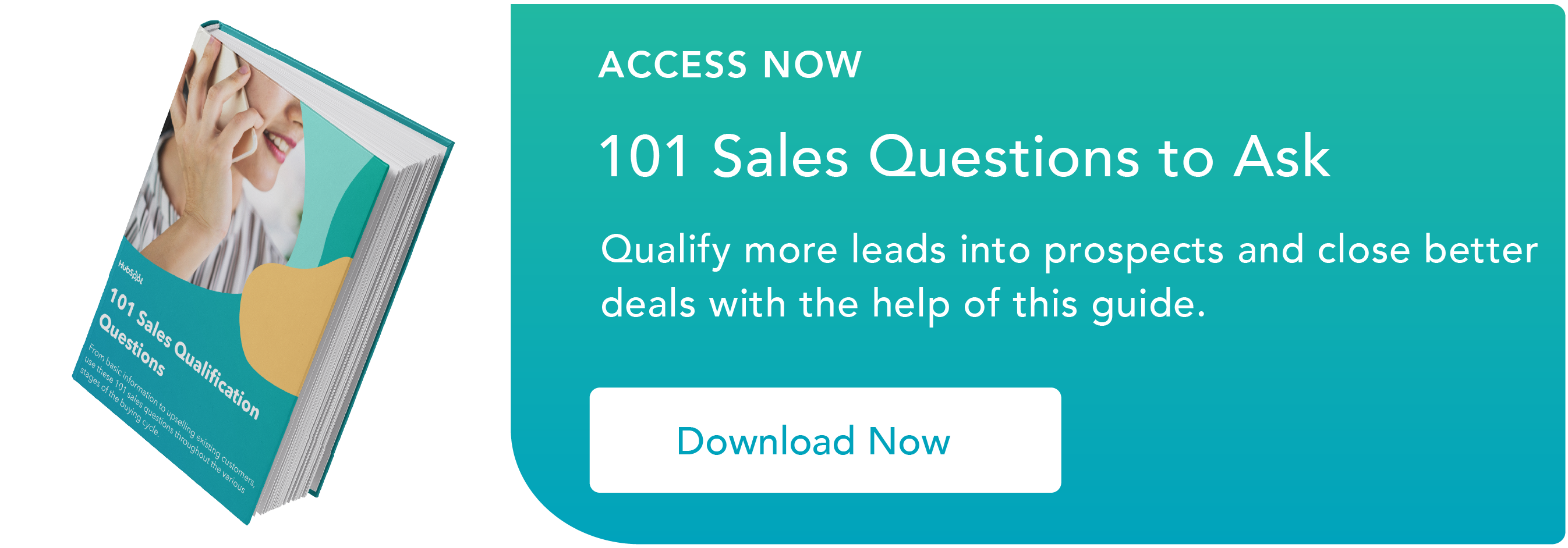Did That Make Any Sense Are You Ever Going to Mention It Again
"Does that make sense" is a phrase that creates uncertainty and uncertainty instead of being reassuring. It can imply that the other party is obliged to understand what was said. A better phrase to utilise is "How does that sound to y'all?" We've all heard information technology before. You're deep in conversation or on a demo, being sold to, and the sales rep asks you lot, "Does that make sense?" Yous chop-chop agree, "Absolutely!" But what you're actually thinking is, "I have no idea what you're talking most. I can't wait for this call to stop, so yep, certain, it makes sense." What'south worse than hearing this phrase is maxim information technology. And I know you lot've used it too. Asking "Does that make sense?" comes from a place of innocence – maybe even a identify of compassion. You want to affirm that your prospect understands what yous're saying, then you ask the question and mean it. Unfortunately, it actually simply confuses the prospect, which is the contrary of what yous were going for. Here are three reasons why it's such a horrid phrase, and three new means to ensure your prospect is adequately informed. If a sales rep is good at communicating she doesn't demand to inquire the question. During sales conversations, you're non only supposed to be the expert of what you're selling, but also of how y'all sell it. But request "Does that brand sense?" casts uncertainty on you well-nigh the accuracy or veracity of your content and puts you in a position of weakness. Oft there are more decision makers involved than are on a call. If your pitches and explanation aren't clear plenty and you're not sure if you're articulating the value clearly, how is your prospect supposed to communicate back to their team and other decision makers? They won't, at to the lowest degree non effectively. In addition, the phrase sounds similar you're questioning the prospect'due south ability to empathise what you say or appreciate the content. How condescending! Endeavour this instead: "How does that sound to y'all?" is a swell commencement step and will give you a truthful sense of how they interpreted your information so that you lot tin can arrange appropriately. It's an like shooting fish in a barrel phrase to commencement adopting right away. Chances are that you employ the question when yous're about to explain something entirely new. The prospect can tell, as well! They know you're not looking for a true answer. They understand there's more than to dive into, so out of habit they say yes then y'all both can move on. In sales, don't ask questions you don't really desire the answer to, especially if the answer is e'er going to be the same. If you lot're using the worst question in sales, your prospect tin tell you desire to movement to the side by side step, and you're essentially choosing non to empathize with their level of agreement. Endeavor these instead: In sales, dumb questions are the ones that don't give reps more insight into their customers' buying journeys. When y'all ask, "Does that brand sense?", what you're really request is, "Am I doing my job?" People don't want to respond no to that question. Smart sales questions, on the other paw, don't typically evoke a yes/no response. Smarter questions brand the prospect talk ... a lot. Avoid "yep/no" responses and become the prospect to open up about how they view the value of what you are selling for a more honest, valuable exchange of data. Try these instead: This is the blazon of question you're not expecting an answer to. So, when a prospect actually says, "No, I don't empathize," y'all might be a petty defenseless off baby-sit and appear unsure of yourself or the product/service. If in that location'due south a moment where you ask, "Is that clear?" be prepared for a negative response, and instead of forging ahead with an answer, ask clarifying questions. Effort these instead: Nosotros've all been in meetings where the presenter asks, "Does that make sense?" and, while you lot're extremely lost, no one else says anything so you keep your mouth shut. The presentation moves on, only you lack crucial understanding that makes the rest of the slides seem jumbled. Don't risk this in your presentations. If one person's lost, it's likely others are as well. Rephrase the question and then information technology's more approachable to all attendees. Try this instead: "So, I've just explained [give a one sentence recap of what you lot've but covered]. People often take questions here. What questions do y'all take?" You lot've given a brief overview of the topic, and you've lowered the bulwark to questions by explaining many people need description at this stage. "Does that make sense?" is an incredibly common question on sales calls, but 1 that provides very petty boosted value to either party. Instead of relying on it equally a filler or using it to force a transition, endeavor out the alternatives to a higher place to create a more than productive chat that actually makes sense. "Does that brand sense?"
![Free Download: 101 Sales Qualification Questions [Access Now]](https://no-cache.hubspot.com/cta/default/53/e97d6603-b40e-4085-ad55-0074b7351ead.png)
Why You lot Shouldn't Enquire, "Does It Make Sense?"
1. Instead of reassuring the prospect, it creates doubtfulness and doubt.
two. You're just using information technology as a transitional phrase
three. It'south a impaired question
4. You don't expect an answer
five. Non everyone feels comfy answering


Originally published May 9, 2018 1:07:00 PM, updated October 29 2019
dalgleishmandearer.blogspot.com
Source: https://blog.hubspot.com/sales/does-that-make-sense